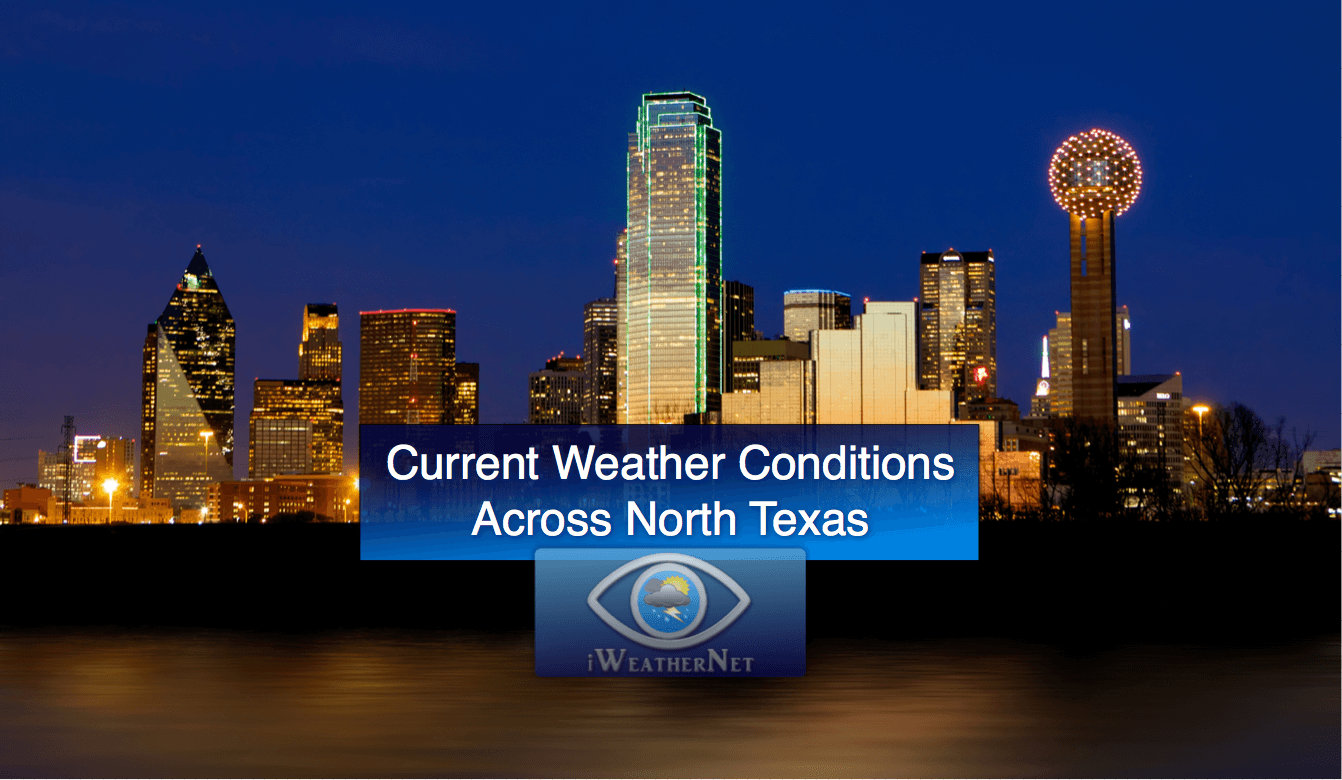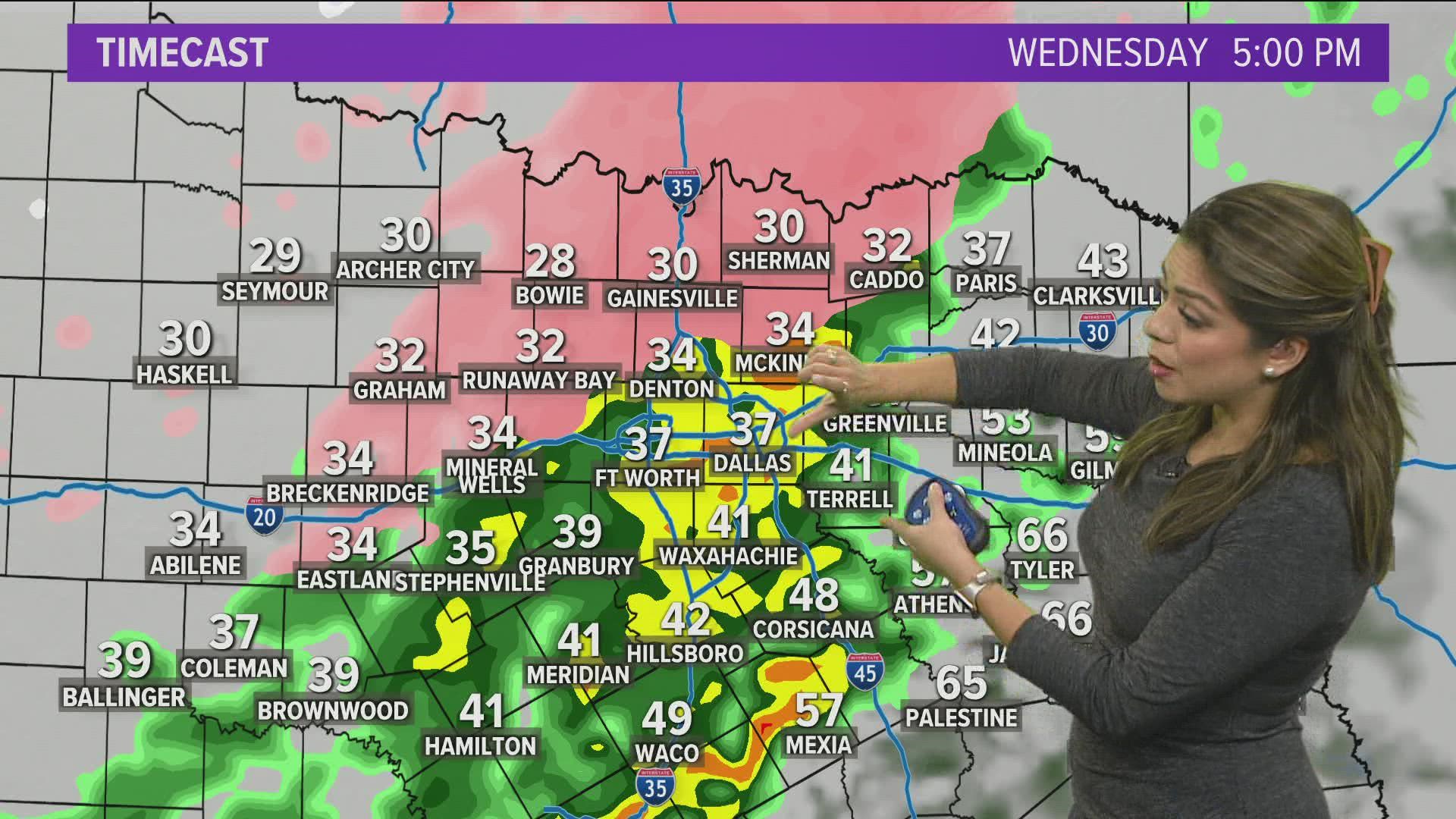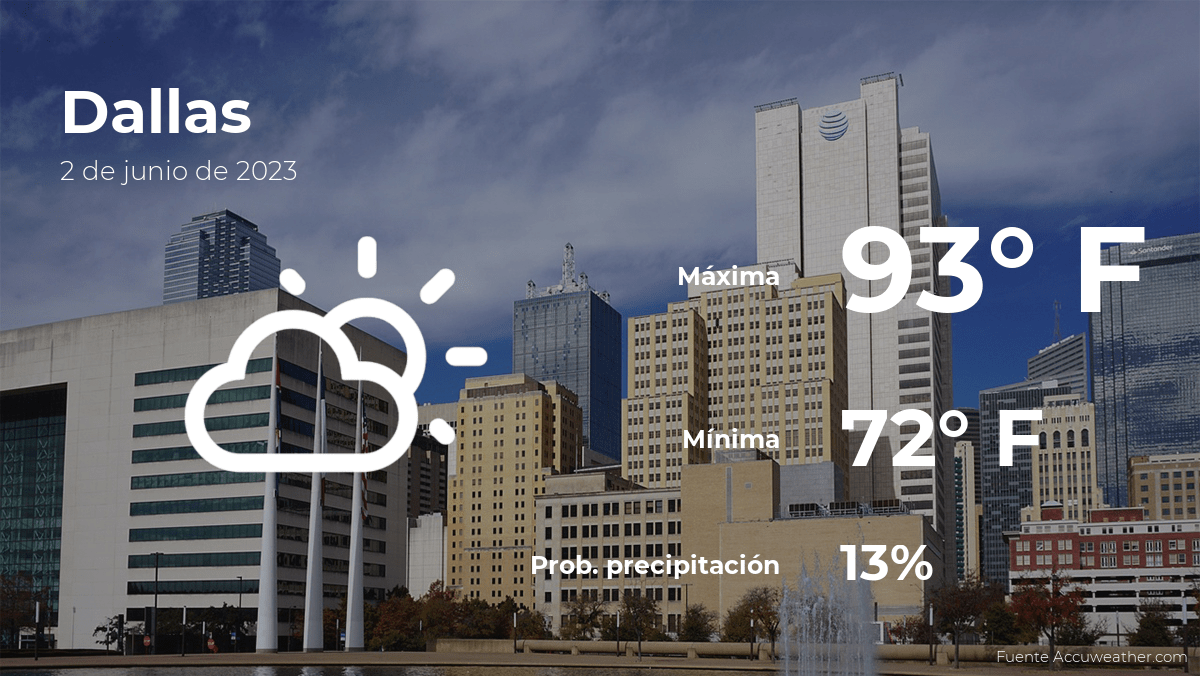Weather Conditions and Patterns: Weather Dallas

Weather dallas – Dallas experiences a humid subtropical climate with four distinct seasons. The city’s weather is characterized by hot, humid summers and mild, dry winters.
The weather in Dallas is as unpredictable as the headlines. Just when you think you’ve got it figured out, a sudden downpour or a heatwave comes along to prove you wrong. It’s a constant reminder that even in the most mundane of things, there is always the potential for tragedy.
Like the decapitated baby in Rafah , whose death sent shockwaves through the world. The weather in Dallas may be unpredictable, but it’s nothing compared to the horrors that humans are capable of inflicting on one another.
Average temperatures in Dallas range from 45°F (7°C) in January to 95°F (35°C) in July. Humidity levels are typically high throughout the year, averaging around 65%. Precipitation is fairly evenly distributed throughout the year, with an average annual rainfall of 38 inches (97 cm).
Storms
Dallas is located in Tornado Alley, a region of the central United States that experiences a high frequency of tornadoes. The city averages about 10 tornadoes per year, most of which occur during the spring and fall.
The weather in Dallas is sweltering, but it’s nothing compared to the heat Robert De Niro brought to his blistering ad against Donald Trump. The actor’s impassioned plea, delivered with his signature intensity, has reignited the political discourse and sent shockwaves through the nation.
Now, as the sun beats down relentlessly on Dallas, it serves as a reminder of the scorching debate that continues to rage in the political arena.
Dallas is also prone to thunderstorms, which can produce heavy rain, lightning, and hail. The city averages about 50 thunderstorms per year, most of which occur during the summer months.
Historical Weather Data and Trends

Dallas has a humid subtropical climate, with hot summers and mild winters. The average temperature in July is 86°F (30°C), while the average temperature in January is 45°F (7°C). The city receives an average of 38 inches (965 mm) of rain per year, with most of the rain falling during the spring and summer months.
Over the past few decades, Dallas has experienced a number of significant weather events, including the Great Dallas Tornado of 1957, which killed 10 people and injured hundreds more; the Dallas flood of 1989, which caused $1 billion in damage; and the North Texas ice storm of 2011, which left hundreds of thousands of people without power for days.
The climate of Dallas is changing, and the city is experiencing more extreme weather events. The average temperature in Dallas has increased by 2°F (1°C) over the past century, and the city is now experiencing more heat waves and droughts. The amount of rainfall in Dallas has also increased over the past few decades, and the city is now experiencing more flooding.
These changes in climate are likely to continue in the future. The climate models predict that Dallas will experience more extreme weather events, including heat waves, droughts, and floods. The city is also likely to experience an increase in the average temperature and the amount of rainfall.
These changes in climate will have a significant impact on the city of Dallas. The city will need to adapt to these changes in order to protect its residents and its infrastructure.
Temperature Extremes
The highest temperature ever recorded in Dallas was 113°F (45°C) on August 10, 1936. The lowest temperature ever recorded in Dallas was -8°F (-22°C) on February 12, 1899.
Rainfall Patterns
The average annual rainfall in Dallas is 38 inches (965 mm). The wettest month is May, with an average rainfall of 4.5 inches (114 mm). The driest month is January, with an average rainfall of 2.2 inches (56 mm).
Significant Weather Events
Some of the most significant weather events in Dallas history include:
* The Great Dallas Tornado of 1957
* The Dallas flood of 1989
* The North Texas ice storm of 2011
Impact on Daily Life and Activities

Dallas’ weather significantly influences daily life, affecting transportation, outdoor activities, and tourism. Extreme heat or cold poses challenges but also presents opportunities for residents to adapt and enjoy the city’s diverse climate.
Transportation
During extreme heat, traffic congestion can increase as people avoid walking or cycling. Public transportation usage rises, straining the system’s capacity. Conversely, icy conditions in winter can make driving hazardous, leading to delays and cancellations.
Outdoor Activities, Weather dallas
Summer’s intense heat limits outdoor activities, particularly during the afternoon. Parks and trails become less crowded, while indoor entertainment venues experience higher attendance. In contrast, mild winters allow for continued outdoor recreation, such as jogging or picnicking.
Tourism
Dallas’ weather affects tourism patterns. Peak season occurs during spring and fall, when temperatures are moderate and outdoor activities are enjoyable. Summer heat can deter tourists, while winter cold limits outdoor attractions.
Planning Outdoor Events
To mitigate weather’s impact on outdoor events, planners should:
- Monitor weather forecasts closely and have contingency plans in place.
- Consider scheduling events during milder times of the day or year.
- Provide shaded areas, water stations, and cooling devices during hot weather.
- Cancel or postpone events if extreme weather conditions are predicted.
Amidst the relentless downpour that has besieged Dallas, a verdict has emerged from the tumultuous political landscape: the trump verdict. As the rain continues to lash against the city, casting an ethereal glow upon the streets, we are reminded of the transformative power of nature and the ever-evolving currents of our society.
The relentless heat of Dallas’ summer days can be oppressive, but even the sweltering temperatures cannot compare to the intensity of Robert De Niro’s performance in ‘The Deer Hunter’. His raw portrayal of a soldier grappling with the horrors of war is as unforgettable as the scorching Texas sun, leaving an equally profound mark on the soul.
The weather in Dallas is typically hot and humid in the summer, with average temperatures in the high 80s and low 90s. However, the city can also experience severe thunderstorms, tornadoes, and hail. The weather in Dallas can be unpredictable, so it’s important to be prepared for anything.
Robert De Niro’s portrayal of a troubled Vietnam War veteran in the film “The Deer Hunter” is a powerful and moving performance. The film’s depiction of the psychological and emotional toll of war is both harrowing and heartbreaking. The weather in Dallas can be just as unpredictable as the emotions of a war veteran.